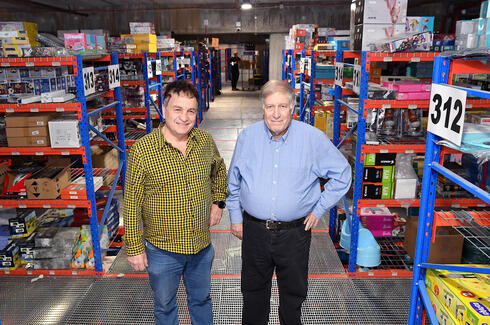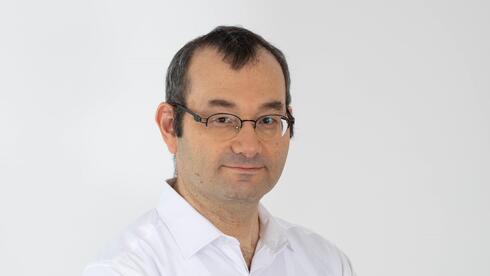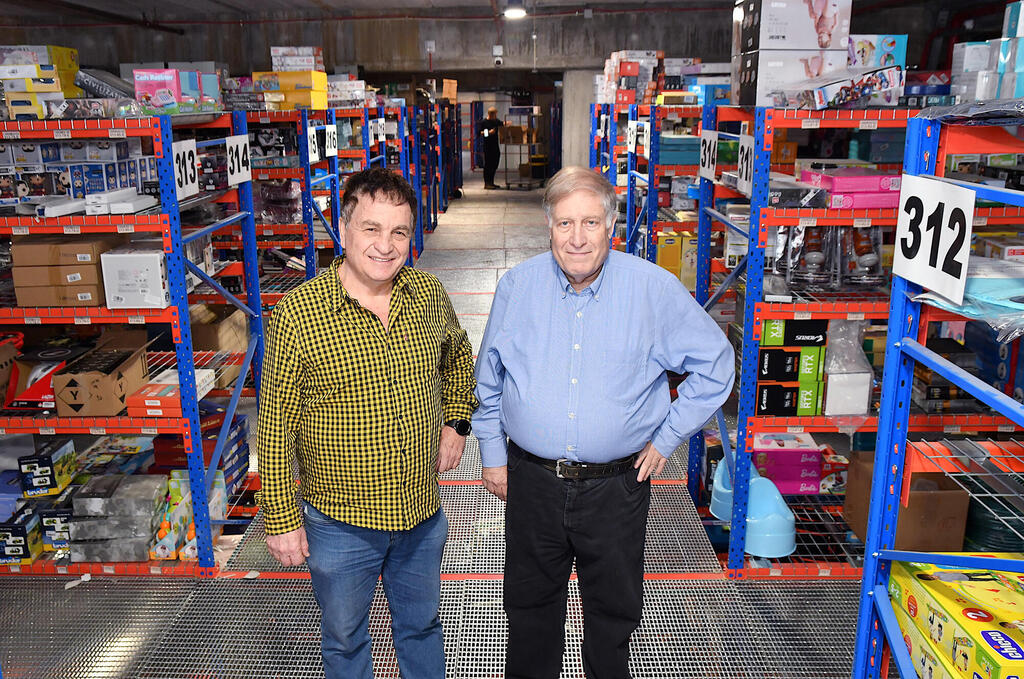
From importing computer parts to a $160 million exit: KSP’s founders cash in on retail empire
Altshuler Shaham leads the charge as KSP founders sell a significant stake at a $650 million valuation.
Investment house Altshuler Shaham is on its way to becoming the largest institutional entity in retail chain KSP. The investment house's provident company, Altshuler Shaham Provident and Pension, is the main entity with which Zeev Sorkin and Yaakov Priluk, founders of the retail chain, are conducting advanced negotiations to sell a significant portion of their shares at a valuation of NIS 2.3 billion (approximately $648M).
The negotiations, conducted through Leader Investment Bank and now in their final stage, were first revealed by Calcalist last December and were initially based on a valuation of NIS 2 billion ($564M). However, it is understood that the data KSP presented to institutional investors during a roadshow-like process convinced them to assign the company a higher value. This valuation also exceeds the one at which the company planned to go public on the Tel Aviv Stock Exchange in 2021, at the peak of the IPO wave—NIS 1.4 billion ($395M).
Sorkin and Priluk are expected to sell a 20% to 25% stake in KSP. Altshuler Shaham is the anchor investor in the deal, and after its completion, additional institutional investors are expected to join—likely 1 to 3 of those who submitted offers, including Migdal Insurance, Clal Insurance, and More Investment House. Harel Insurance and Phoenix chose not to submit offers. The KSP owners will decide in the coming days the size of the stake they will sell. Altshuler Shaham Provident and Pension is expected to purchase a 10%–15% stake, with the remaining shares to be acquired by other entities.
In any case, the sale will be almost entirely a direct transaction from Sorkin and Priluk, who currently hold equal shares in KSP, to the institutional investors. The two are expected to make an exit valued between NIS 460–575 million ($130M-$162M).
The founders' impending exit may also pave the way for an initial public offering (IPO) on the Tel Aviv Stock Exchange within a year or two, with the deal finalized with Altshuler Shaham establishing a valuation floor that other institutions will be expected to match, assuming no adverse changes occur in KSP's operations.
An unconventional deal for Altshuler Shaham
For Altshuler Shaham, this is an unconventional deal in terms of scale, as the investment house does not often invest large sums in private companies. A previous significant investment of this type was made in 2018 when Altshuler Shaham Provident and Pension invested NIS 150 million ($42M) in the retail company Freshmarket, even before it was listed on the stock exchange, at a valuation of approximately NIS 750 million ($212M).
In August 2021, after Freshmarket went public, Paz purchased all its shares for NIS 2.1 billion ($592M), and Altshuler Shaham Provident and Pension recorded a threefold return on its investment. It seems that the heads of the provident and pension company—Gilad Altshuler, Yair Levinstein, and Lea Preminger—believe that this success can be repeated, although 2024 is not necessarily a representative year for KSP’s results.
The entire retail sector is experiencing a boom due to the war, which has led to a decrease in the number of flights to Israel following the suspension of foreign airlines' operations. This has increased consumer spending within Israel, with KSP’s website also benefiting from the reduced availability of duty-free shopping for Israelis.
KSP is expected to end 2024 with a net profit of NIS 150 million ($42M), higher than the net profit it reported in 2021—about NIS 90 million ($25M)—when it was in talks with institutions about an IPO. The company also has almost no debt, which contributes to its high profitability. KSP reports strong profitability from marketing Apple iPhones, which it officially began selling in 2022, alongside Icon Group, which operates the iDigital network, and C-Data.
KSP's evolution from a small shop to a retail giant
KSP was founded by Sorkin, Priluk, and Oded Koren (who has since left the company) in 1997 in Haifa, where they opened their first branch in a one-room apartment. At the time, they were importing computer components. When the market became saturated and prices dropped, they shifted to importing and selling computers. As this category also became highly competitive, they expanded into computer peripherals.
In 2010, the company began diversifying into additional categories unrelated to computers to cope with growing market competition.
The big shift occurred in 2018, amid news that retail and technology giant Amazon was entering the Israeli market. This news created significant uncertainty among local retailers, prompting Priluk and Sorkin to establish an online platform to sell their products on a larger scale than through their physical branches.
To support this move, the company purchased the logistics center of the Schestowitz distribution company in Tirat Carmel for NIS 50 million. This center covers 14,000 square meters and sits on 21 dunams of land. It replaced a smaller KSP logistics center of just 1,800 square meters, enabling the company to dramatically increase its online activity.
The site's popularity soared during the pandemic
During the COVID-19 pandemic in 2020, KSP’s website became particularly popular due to its competitive prices and its ability to deliver products to customers while international travel was restricted and global supply chains were disrupted, making it difficult to purchase from international sites like Amazon.
Since then, KSP’s status has been firmly established, and in the past year, due to the war, it has also benefited from Israelis staying in the country because of limited flights abroad.
Despite the dominance of KSP's website, the company does not allow price comparison websites such as ZAP to display its data, following a decision made in 2020.
A diverse retail empire with family ties
Today, KSP has 62 branches and has long expanded beyond its roots as a computer and mobile device retailer—the sectors with which it was identified for many years. Today, KSP sells refrigerators, washing machines, televisions, watches, kitchen products, toys, sports equipment, garden furniture, automotive products, air conditioners, tools, and baby products.
In an interview with Calcalist in 2022, after shelving plans for an IPO, the founders of KSP proudly highlighted the strength of their website, saying, "Even if we put a donkey on the site, we would sell it within a week."
In the field of white goods and televisions, KSP works with official Israeli importers of global brands such as Tadiran, Hamilton, Getter, and others. Additionally, it imports some products through parallel imports, mainly in the computer category.
KSP's growth has also brought family members of the founders into key roles within the company. The company’s business development is led by Avichai Schachter, Priluk’s son-in-law, who also manages marketing; Ran, Sorkin's son, is responsible for technological development; and Narkis, Priluk’s daughter, works as an attorney in the legal department.















